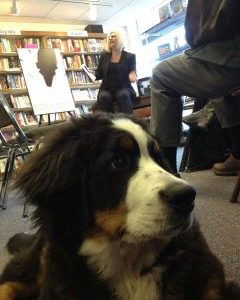We’ve already addressed three of the four basic categories that new authors tend to fall into: the I have an idea I’d like to share with the world group, typically consisting of business advice – an idea, the I have a story to tell group, often about overcoming adversity, and/or self-help advice and the I want to write a book and give my business, or personal brand, a boost folks. We’ve given these author-types some advice on the best way to get things started.

That leaves our fourth and final category, consisting of the I love to write and I’m pretty good so I should probably write a book folks. For them the subject of the book is often secondary to their desire or even need to express themselves in writing.
At the risk of seeming immodest, that’s where I place myself. As an English major and a former English teacher, I have always wanted to write a book and I’ve never been shy about sharing that fact. When I finally got around to actually writing a manuscript there were those who asked “why did you wait so long?” And the answer is simple. I envisioned pouring my heart into my life’s work and spending the next decade receiving one rejection after another from heartless publishers who would ignore and overlook my brilliance, thus shredding my very soul.
Getting to know a publisher gave me the courage to take a shot. Once I’d made the decision to finally write the damn thing – I hadn’t a clue of what to write. A chat with this publisher helped to get me focused.
“What do you love?” he asked.
“I love comedy.”
“Then write your comedy and show it to me,” he suggested.
That was it. Next challenge – decide what funny things to write about. As a lifelong aficionado of murder mysteries – both serious and comedic – the old adage “write what you know” seemed applicable.
Once my genre was set I sat down to write. The first three chapters virtually wrote themselves. I packaged these up and sent them to my “publisher acquaintance” to await his verdict.
A few weeks later confirmation arrived. My chapters were of enough interest to warrant finishing the book. It was a bittersweet moment that juxtaposed the thrill of having a publisher’s interest and the terror of being clueless as to how to write a whole book.
For me, the next step was to continue writing while simultaneously creating a writing process. There are some who would say my journey appears to have been backwards. But it’s what worked for me.
Here are a few pointers for those of you raring to go:
- The writing is so much fun! If it’s not, maybe you have the wrong topic (obviously if you’re writing about a somber subject it won’t be a laugh riot – but it should “feel good”).
- You need some kind of a process. Everyone asked me if I had an outline – I never did. I found that the writing just took its own twists and turns. What I did need, however, was a process to determine:
- How long before I start to write the ending: I decided to split the book into quarters – and not start writing the ending until the fourth quarter – that was an enormous help.
- How many pages does it need to be: I did some checking on several books in the genre – and they were books that I enjoyed so I knew that the length did not prove to be an obstacle in the enjoyment of the work.
- How to determine how many instances of physical comedy should be included: Again, research other authors in the genre – try to focus on books you thought worked well and see how many individual times they used physical comedy.
- How to remember details so I could tie up loose ends: I kept a notebook with notes on every chapter. I chronicled when every character was introduced and when every plot turn occurred – it’s impossible to remember every detail – notes are a godsend. I also took notes on every character’s name – you’d be surprised how you can forget a character’s last name – or how you spelled their name.
- In my case, folks always ask me if I knew who the murderer was in the beginning. The answer is “no.” At times I thought I knew, but as things progress I changed my mind – several times. Letting the prose take you where it does is known as creativity – don’t try to jam your creativity into a pre-determined outline!
- Let the editors do their work! If you are self-published, make it your business to find some great editors and ask them to be ruthless. If you publish traditionally or collaboratively your publisher will take care of that for you. Remember, a suggested change by an editor is not a failure of your manuscript – if you let the creative juices flow there are bound to be mistakes or awkward areas. A great editor will honestly improve the quality of your end product – we don’t always see the flaws in our own creation – nor do friends and relatives!
- If all else fails, just write and see where it takes you! You can always turn it into a book later. The whole key to your success is to let yourself go! After that, process and editing (not to mention proofing) will clean things up and make you ready for “prime time!
Donovan heads Bozell Books, a division of Bozell designed to help authors and budding authors from inception through promotion of their published work. She has authored a novel entitled: Is It Still Murder Even If She Was a Bitch? www.rldonovan.com, and the second in her Donna Leigh Mysteries series is currently being published. Her next installment of FAQs on Authoring a Book will address the prospective author with confidence in their ability to write and how it impacts their process of “Getting Started.”




2 Comments